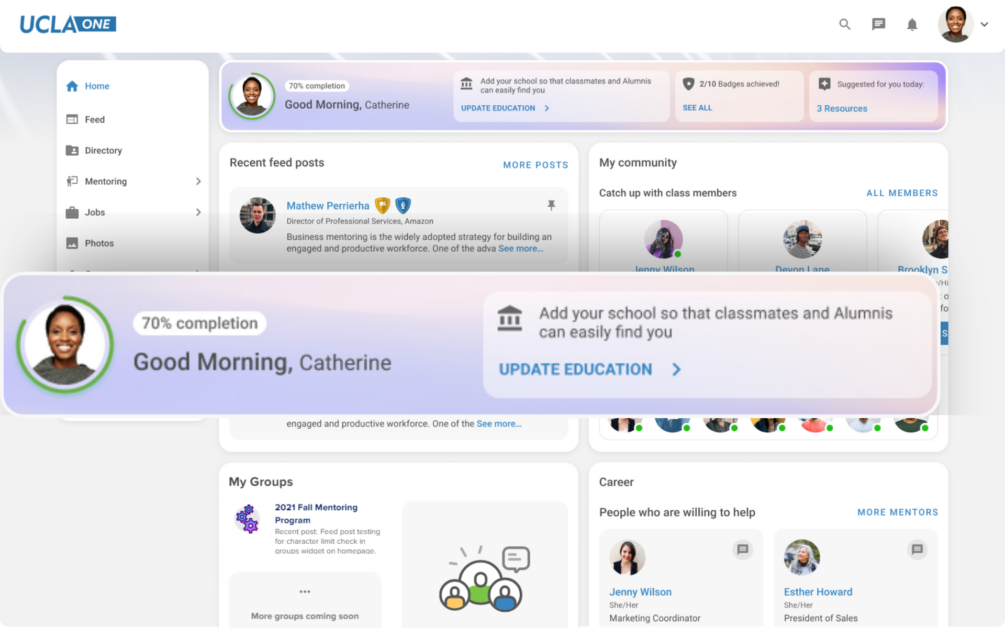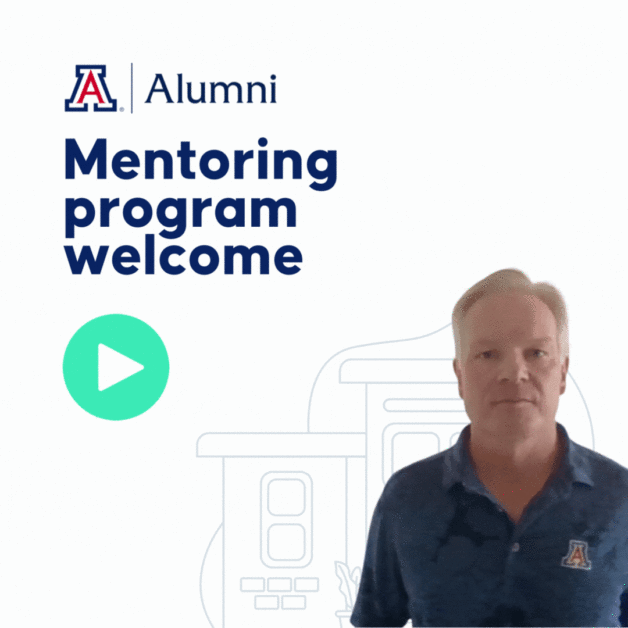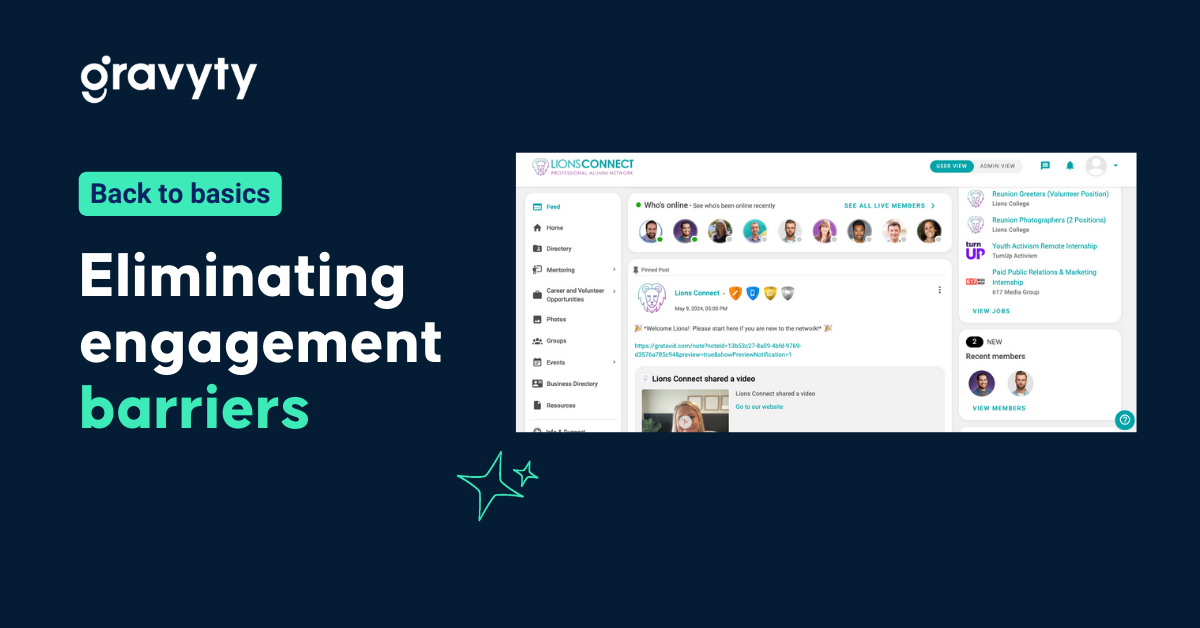The complete guide to building alumni engagement programs

Effective alumni engagement is critical for the long term advancement of your institution. Alumni bases are a school’s most loyal and passionate advocates. A successful engagement program, while hugely beneficial to the institution’s fundraising efforts, goes beyond financial impact. It can strengthen the institution’s brand reputation, build mutually beneficial relationships and expand the network of support.
In this guide, we tell you everything you need to know about developing an impactful and scalable alumni engagement program.
Establish goals & milestones
To develop meaningful goals for your alumni engagement program, start by identifying the overarching mission and vision of the institution and how the alumni program can support these objectives. Conduct surveys and focus groups to understand alumni needs, preferences, and interests (we’ll dive into this more below).
Once you have the data, analyze it to pinpoint the key areas your program will focus on in a given fiscal year, like networking, mentorship, professional development, and social events. These general areas of focus will be the cornerstones of your alumni program, and success should be measured around these areas.
Set SMART (Specific, Measurable, Achievable, Relevant, Time-bound) goals to ensure clarity and track progress.
Example: Increase alumni participation in events by 20% within a year or to establish ten new mentorship pairs each quarter.
Regularly review and adjust these goals based on feedback and changing dynamics within the alumni community.
Establishing milestones is another way to ensure you’re tracking towards your goals throughout the year. Milestones are a good way to measure and report on progress to the wider organization. Set estimated dates for completion and meet regularly with the alumni relations team to stay updated on progress.
Some milestones to consider tracking include:
- Program launch
- Host first alumni event
- Launch alumni portal
- Kick off communication plan
- Launch mentoring program
- Execute alumni fundraising campaign
- Roll out alumni survey
Understand what your alumni want
Now that you have established goals you will work toward, it’s important to understand the types of programming and services your alumni community wants to engage with. Without considering the preferences of your alumni, alumni engagement teams might not hit engagement targets because they are missing the boat on what community members are interested in. Employ a range of strategies to better understand alumni preferences.
Alumni surveys
Regularly distribute surveys and questionnaires to alumni to collect data on their interests, needs, and preferences regarding events, communication, and services. Some alumni engagement platforms offer a built-in survey tool to survey community members directly in the network.
Focus groups
Conduct focus group discussions with diverse groups of alumni to gain in-depth insights into their experiences and expectations. Use these small, interactive sessions to explore specific topics in detail. As a result, you’ll generate rich, nuanced feedback that can inform the development and improvement of alumni programs and initiatives.
Social media monitoring
Social media can be a powerful tool in understanding alumni behaviors and interests. It’s where alumni of today convene and share insights – 42% of alumni use social media to connect with their alma mater. Monitor social media platforms and alumni networks to observe trends, discussions, and sentiments expressed by alumni.
Feedback forms
Use feedback forms at events and in communications to gather immediate reactions and suggestions from alumni. Feedback forms can be helpful in gathering raw insights from alumni.
Alumni advisory boards
Establish alumni advisory boards composed of selected alumni who provide strategic advice and feedback. Board members leverage their professional networks and personal influence to enhance outreach and participation, ensuring that the engagement strategy is inclusive, relevant, and effectively aligned with alumni interests and institutional goals.
Data analytics
Analyze data from alumni interactions, event attendance, and communication engagement to identify patterns and preferences. Alumni engagement software can provide analytics on platform engagement to get a clear picture of digital engagement.
Assign team roles and responsibilities
Another key step in a successful engagement program is outlining team members’ roles and responsibilities. First, identify the key functions necessary for a successful engagement program, such as event planning, communications, fundraising, data management, and volunteer coordination. Match team members to roles based on their skills, experience, and interests to ensure they are well-suited and motivated.
Then, clearly define each role’s responsibilities and expectations to avoid overlap and confusion. Some teams might choose to develop a RACI chart to establish cross-team collaboration expectations.
Make sure to regularly review and adjust roles as needed to adapt to evolving goals and challenges, ensuring the team remains dynamic and effective in meeting alumni engagement objectives.
Alumni fundraising: How to build a culture of philanthropy with alumni
When building an alumni engagement program, it’s important to consider the impact on alumni giving the program can and should have. Encouragingly, a majority (60%) of alumni in a recent survey say they are likely or very likely to donate in the future. Just 21% say they are very unlikely or unlikely. In fact, those actively engaged in an alumni platform are even more likely to be donors: a staggering 93% of donor alums saying their alma mater engages with them via an alumni portal. Alumni fundraising refers to the efforts of institutions to solicit financial contributions from their graduates—a community that’s already invested in the success of the school.
Alumni fundraising campaigns often involve personalized appeals, annual giving programs, capital campaigns, and special events designed to engage and inspire alumni to give back. Here are some alumni fundraising ideas to consider when building a fundraising strategy:
Giving day campaign
Giving days, or days of giving, are 24-hour fundraising events aimed at rallying communities to engage and give back to an organization or institution. They often include things like challenges and ambassador outreach to generate excitement and drive friendly competition. And giving days work: in the same survey referenced above, one-third (33%) of alumni donors were prompted to give from a day of giving campaign.

Personal appeals
Custom, personalized messages can go a long way in driving alumni gifts. And alumni of today expect (and prefer) to be solicited through digital channels. The three most common channels that prompted an alumnae to donate are email, text, and social media. Use an omni-channel mix to solicit donations, scaling personalized outreach with technology.
Annual giving
Annual giving campaigns are sustainable sources of philanthropic support. Implement regular, recurring campaigns that encourage alumni to make yearly contributions, fostering a habit of giving and providing a steady stream of funding. Alumni expect curated experiences and meaningful engagement, so crafting an annual giving strategy that delivers personalized outreach and asks year-round is important to see impact.
How to engage alumni
Institutions are faced with a consistently evolving alumni landscape – in-person events are back to pre-pandemic levels, yet the digital era is here, with alumni preferring to engage largely through digital channels. When building your engagement strategy, use the insights you have gathered from alumni as well as industry best practices and institutional goals to dictate your engagement channel spread.
Having a robust alumni portal in place is simply a minimum requirement for today’s advancement and engagement teams: 83% of alumni say their alma mater uses an online platform to engage them.
Below are approaches to consider integrating into your engagement strategy.
Choosing the right alumni engagement software
Now that you have outlined an alumni engagement strategy that includes measurable goals, engagement tactics and outreach channels, it’s time to find the tools to help you execute on your plan. It’s clear that choosing alumni engagement software that integrates various outreach channels like email, newsletters, and video is key to a seamless and scalable program. Here are other considerations to keep in mind when choosing an alumni software:
- Functionality: Can the platform support engagement tactics like event management, outreach, networking, affinity groups, and performance tracking?
- User-friendliness: Is the platform intuitive and easy to navigate for both the administrators on the alumni relations team and the alumni end users?
- Customization: Can the platform be personalized and tailored to the institution’s branding and use needs? Does it offer personalization for alumni outreach?
- Security & privacy: Does the platform adhere to strict security standards to protect alumni data and ensure compliance?
- Cost: What is the cost of the platform relative to the department budget? What support and implementation is offered by the vendor included in the cost?
- Peer testimonials: Does the platform have positive testimonials from peer institutions with regard to efficacy, reliability and user satisfaction?
Alumni events
With in-person events back in the fold (events are the fourth most used channel for engagement, according to alumni) and virtual events becoming more accessible than ever, events have the potential to be a significant source of engagement.
Mentorship
Another effective way to provide value to your alumni is through mentorship. Mentoring fosters a sense of community and purpose among graduates. Use a mentorship platform to match mentors with mentees based on interests and career goals ensures a tailored and impactful experience. Regular updates, success stories, and recognition of mentors’ contributions can further incentivize participation and maintain long-term engagement.

Career development & support
In a competitive job market, career development is a clear and constant focus for alums. In fact, according to alumni from a recent survey, career support is the most valuable alumni service their institution provides. Collaborate with career services teams to deliver value to your alumni base by offering services like career coaching, resume reviews, and job boards. Organize career fairs, workshops, and webinars featuring industry experts and successful alumni, providing valuable insights and professional development.
Continuing education
One way for alumni to get a leg up on the competition in the market is through continuing education and professional development. Use your exclusive network to offer access to advanced courses, certifications, and seminars that align with current industry trends and professional development needs. Collaborating with faculty and industry leaders to deliver high-quality, relevant content ensures that alumni view these opportunities as valuable investments in their careers.
Volunteering
Volunteer opportunities allow graduates to contribute their time, skills, and expertise to causes they care about. By organizing events such as community service projects, mentorship programs, and alumni advisory boards, you can provide avenues for alumni to stay connected and make a tangible impact. Offer flexible volunteering options, both virtual and in-person, to make it accessible and engaging for alumni regardless of their location.
Achievement recognition, campus updates & more
Keeping alumni engaged is more than just career services and job postings. Celebrate achievements of the alumni community through regular newsletters and portal updates. Regularly share campus updates like new programs, faculty research, days of giving, and infrastructural improvements, to keep alumni engaged and invested in the school’s growth. Personalized communication through newsletters, targeted emails, and video messaging can ensure that alumni feel valued and up-to-date.
Create an omnichannel outreach plan
Once you have established a robust engagement strategy to engage your alumni base consistently and meaningfully, it’s time to determine how you will communicate these program tactics. Use a strategic mix of communication platforms to reach graduates where they are most active and receptive. By tailoring content and messaging to fit each platform, alumni relations teams can stay relevant with alumni preferences. Make sure to use data analytics to track engagement patterns and refine your strategy over time.
Email is by far the most leveraged (and most preferred) outreach channel when it comes to alumni engagement. 68% of alumni say their alma mater engages with them via email, and 61% say it’s their top preferred channel. Because of its prevalence, the key to strong engagement through this channel is personalization.
By segmenting the alumni database based on factors like graduation year, industry, and past engagement, teams can tailor messages to resonate more deeply. A regular cadence of event invitations, birthday greetings, campus updates, and stories highlighting alumni achievements keep alums informed and connected with the institution.
Newsletters
Newsletters are a tried and true communication tool for alumni relations teams. Newsletters can foster a sense of community by featuring a mix of school news, alumni achievements, opportunities for involvement, and student stories.
Personalizing sections of the newsletter — for example, highlighting alumni from specific graduation years or industries — increases relatability and engagement. Include interactive elements like surveys, polls, and feedback forms to drive active participation and make alumni feel heard. Leverage an alumni engagement platform to automate newsletters and make a bigger impact in less time.
Social media
Today’s alumni base is a digital-centric one. Alumni relations teams can engage alumni with social media by creating dynamic, interactive, and community-focused content that resonates with alumni’s interests and experiences.
Using platforms like Facebook, LinkedIn, Instagram, and Twitter, teams can share updates on university news, alumni achievements, event invitations, and professional opportunities. Encouraging alumni to share their stories, photos, and career milestones fosters a sense of belonging and pride.
Virtual alumni community portal
An alumni portal offers a fully branded, exclusive community, separate from third-party social media platforms. Use your portal’s feed to communicate events, job opportunities, milestones, campus updates, and exclusive alumni content like webinars and continuing education. Regular updates and notifications about new features or opportunities keep alumni returning to the portal.
By integrating interactive elements like mentorship matching, discussion boards, and volunteer sign-ups, the portal becomes a dynamic hub for alumni engagement, ensuring continuous and meaningful connections with their alma mater. Plus, alumni engagement software provides data analytics and benchmarking so you can monitor engagement.
Text
An emerging outreach channel for alumni engagement is texting. Texting offers a personalized, one-to-one touch point with each alumnae at scale. And all generations of alumni view texting as a key communication method:
- 75% of Gen Z and Millennials would rather text than talk on the phone
- Over one-third of Boomers say it’s acceptable for brands to text them a few times a week
Use a texting software to share personalized updates, event invitations and timely reminders with your alumni base. Text messages are perfect for delivering concise and relevant information that prompts immediate action, like RSVPing for an event, participating in surveys, or donating during fundraising campaigns.

Incorporate interactive elements like polls or quick reply options to encourage alumni to engage and respond.
Video
Video is an ideal channel for cutting through the noise and reaching alums in a meaningful, personal way. Use video messages to highlight alumni success stories, share university news, and promote upcoming events. You can even tap into the wider community by prompting videos from faculty, students and athletes to foster a deeper connection with the institution. Choose an alumni management software that offers built-in video messaging to automate your outreach and track performance.
Another video tactic to use for alumni outreach is live-streaming. Live stream events like virtual reunions, homecoming, sporting events, and Q&A sessions to encourage real-time interaction.

Phone
A more traditional outreach method, phone calling can be effective for relaying one-to-one messages and convey genuine appreciation. Sometimes called telephone outreach programs (TOP), phone calling is most often used during an alumni fundraising campaign such as a phonathon or giving day. However, make note: phone is the least preferred method of communication for alumni today, with just 13% preferring to be contacted via phone versus digital channels like email, social media and newsletters.
What’s next for alumni engagement
Effective alumni engagement is key to building healthy, lifelong relationships between alumni and your institution. By taking a holistic approach to planning an alumni engagement program, you ensure consistent and often predictable engagement that keeps alumni informed, invested and passionate about supporting your institution for years to come.
Gravyty empowers schools to build a thriving, supportive network to fuel their missions with features like automated mentoring, job and internship board, custom newsletters, dedicated affinity groups, and built-in video messaging. Interested in getting a custom demo? Contact us today.



